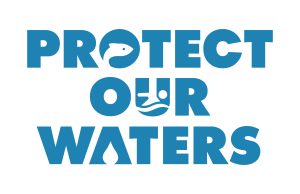Supreme Court Deals a Blow to Clean Water
 What the Supreme Court Clean Water Act Ruling Means for Your Community and Waters
What the Supreme Court Clean Water Act Ruling Means for Your Community and Waters
On May 25, 2023, the US Supreme Court issued their ruling in the Sackett vs. EPA case. With this ruling, the Court has delivered a catastrophic blow to our ability to protect our waters from pollution and climate disasters, undoing protections that have safeguarded our communities and waters for over 50 years.
Through the ruling, the Court severely reduced our nation’s clean water safeguards by limiting Clean Water Act (CWA) protections to only those wetlands that have a continuous surface connection to traditional navigable waters. The likely impact is that more than half of our nation’s remaining wetlands are now unprotected from destruction and pollution. It’s still unclear what the impact of the ruling will be on streams.
By eliminating protections for a majority of our country’s wetlands, this ruling flies in the face of our scientific understanding of the critical role that these waters play in protecting communities from pollution and flooding. These wetlands are vital to our health and safety:
- Wetlands absorb and hold onto flood waters, protecting our communities from devastating floods.
- Wetlands store water making us more resilient to drought.
- Wetlands filter out pollutants, keeping tens of millions of Americans’ drinking water sources clean and our rivers and lakes healthy for fishing, swimming, and boating.
- Wetlands provide critical habitat for our nation’s treasured fish and wildlife.
The Clean Water Act has long protected these vital resources from pollution and destruction. Now that more than half of our nation’s wetlands no longer have these protections, our communities; our drinking water; the places we fish, swim and boat; and our fish and wildlife are much more vulnerable to the devasting impacts of floods, droughts, and pollution.
While today’s ruling damages our nation’s bedrock clean water law, more than 75% of people in this country support strong federal protections for our waters. It is essential that we take full advantage of the tools that remain to protect the waterways our families and communities rely on for drinking, swimming, fishing, fueling local economies, and more from indiscriminate bulldozing and dumping.
What You Can Do
We need Congress and state officials across the country to act fast to protect these critical waters that our nation relies on for drinking, fishing, fueling local economies, and protection from intensifying climate disasters.
- Reach out to your members of Congress and ask them to enact legislation that will protect our communities by protecting critical waters left vulnerable by this ruling.
- Reach out to your state legislators and ask them to enact legislation that will protect our communities by protecting critical waters left vulnerable by this ruling. For examples of how states are bolstering Clean Water Act protections, see River Network’s State Policy Hub.
- Use River Network’s Clean Water Act Owner’s Manual to access fundamental tools for interpreting and applying the Act in your community.
-
[…] passing, is as accessible as it can be, bringing the material to life in new ways. At a time when this landmark water legislation is under frequent attack, it’s more important than ever for advocates to understand all the tools in this essential […]
[…] the major 50th anniversary milestone, this 51st year proved to be one for the books. We’ve seen a devastating Supreme Court ruling, new rules published by the Environmental Protection Agency (EPA), the Act used to protect local […]
[…] fiftieth anniversary milestone, this 51st 12 months proved to be one for the books. We’ve seen a devastating Supreme Courtroom ruling, new guidelines revealed by the Environmental Safety Company (EPA), the Act used to guard native […]
[…] Act of 2023 to restore Clean Water Act protections for wetlands and small streams following the devastating Sackett case, which removed protections for half the nation’s wetlands; […]
[…] Act of 2023 to restore Clean Water Act protections for wetlands and small streams following the devastating Sackett case, which removed protections for half the nation’s wetlands; […]
Leave a Comment





Unfortunately this is the story of our lives. We fail to govern ourselves, but delegated this to administrative agencies – and then once in a while we look like Wiley Coyote, out past the canyon rim. The Clean Water Act never appeared to justify the lengths to which it was stretched – Waters of the United States was not meant to include all waters in the United States. Now we are left to pick up the pieces, to do what must be done ( Garrison Keilor). After having painted ourselves into a corner.
Thanks for reading the blog, Francis. River Network agrees with the vast majority of Americans who think Clean Water Act protections should apply broadly: a recent poll found 75% in favor of protecting more waters and wetlands. It also showed Americans strongly prefer the federal government, through the Environmental Protection Agency, to maintain water standards in the country and we’re more determined than ever to fight for clean water for all.
Hello, April. Thank you for condensing this horrible and complicated issue into an article that even the busiest among us can read. I also appreciate the webinar today.
Has RN considered a sign-on letter as the umbrella for all of the state and local river and watershed groups?